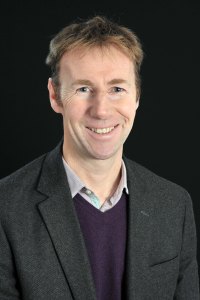Congratulations to volcanologist Dr Mike Widdowson on being selected as Chair of the Volcanic and Magmatic Studies Group.
The Volcanic and Magmatic Studies Group (VMSG) is one of the key UK-wide special interest groups (SIGs) hosted at the Geological Society of London (GSL), and Mineralogical Society of Great Britain and Ireland (MinSoc).
Dr Widdowson, previously Treasurer of the VMSG, will lead the group for the next three years (2015 – 2018), and will liaise closely with other SIG chairs, as well as reporting to, and participating in meetings of the Science Committee at GSL and MinSoc Council.
The next annual meeting of VMSG (c. 200+ delegates) will convene in early January 2016 at Trinity College Dublin.
 Above: Dr Widdowson in Australia
Above: Dr Widdowson in Australia
Dr Widdowson has also been invited to participate in a three-day STEPPE workshop entitled “Tracking biotic change across the Cretaceous-Paleogene (K – Pg) of India”.
The Deccan lavas erupted 65 million years ago, and their effects on global climate and environment have been linked to the mass extinction that killed the dinosaurs.
The principal aim of the workshop is to develop a strategy for establishing a precise and accurate chronostratigraphy and paleoclimate record for fossil-bearing terrestrial localities that span the K-Pg of India.
Dr Widdowson, expert on the Deccan eruptions of Western India, together with 16 other world experts (from USA and India), has benefited from a STEPPE grant to cover travel and accommodation for the duration of the meeting (July 17 – 21st).
STEPPE (Sedimentary Geology, Time, Environment, Palaeontology, Paleoclimatology, Energy) is an NSF-supported consortium whose purpose is to promote multidisciplinary research and education on Earth’s deep-time sedimentary crust.







 improve fish harvest.
improve fish harvest.


